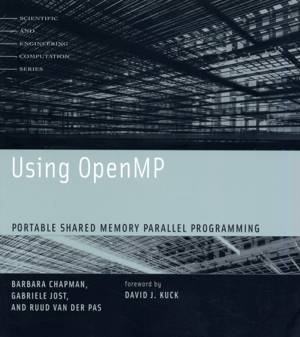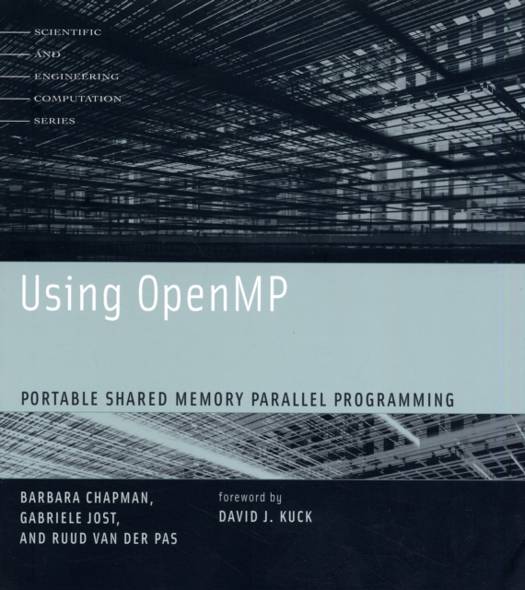
- Retrait gratuit dans votre magasin Club
- 7.000.000 titres dans notre catalogue
- Payer en toute sécurité
- Toujours un magasin près de chez vous
- Retrait gratuit dans votre magasin Club
- 7.000.0000 titres dans notre catalogue
- Payer en toute sécurité
- Toujours un magasin près de chez vous
Using OpenMP
Portable Shared Memory Parallel Programming
Barbara Chapman, Gabriele Jost, Ruud Van Der PasDescription
"I hope that readers will learn to use the full expressibility and power of OpenMP. This book should provide an excellent introduction to beginners, and the performance section should help those with some experience who want to push OpenMP to its limits."
--from the foreword by David J. Kuck, Intel Fellow, Software and Solutions Group, and Director, Parallel and Distributed Solutions, Intel Corporation
OpenMP, a portable programming interface for shared memory parallel computers, was adopted as an informal standard in 1997 by computer scientists who wanted a unified model on which to base programs for shared memory systems. OpenMP is now used by many software developers; it offers significant advantages over both hand-threading and MPI. Using OpenMP offers a comprehensive introduction to parallel programming concepts and a detailed overview of OpenMP.
Using OpenMP discusses hardware developments, describes where OpenMP is applicable, and compares OpenMP to other programming interfaces for shared and distributed memory parallel architectures. It introduces the individual features of OpenMP, provides many source code examples that demonstrate the use and functionality of the language constructs, and offers tips on writing an efficient OpenMP program. It describes how to use OpenMP in full-scale applications to achieve high performance on large-scale architectures, discussing several case studies in detail, and offers in-depth troubleshooting advice. It explains how OpenMP is translated into explicitly multithreaded code, providing a valuable behind-the-scenes account of OpenMP program performance. Finally, Using OpenMP considers trends likely to influence OpenMP development, offering a glimpse of the possibilities of a future OpenMP 3.0 from the vantage point of the current OpenMP 2.5. With multicore computer use increasing, the need for a comprehensive introduction and overview of the standard interface is clear.
Using OpenMP provides an essential reference not only for students at both undergraduate and graduate levels but also for professionals who intend to parallelize existing codes or develop new parallel programs for shared memory computer architectures.
Spécifications
Parties prenantes
- Auteur(s) :
- Editeur:
Contenu
- Nombre de pages :
- 384
- Langue:
- Anglais
- Collection :
Caractéristiques
- EAN:
- 9780262533027
- Date de parution :
- 01-10-07
- Format:
- Livre broché
- Format numérique:
- Trade paperback (VS)
- Dimensions :
- 205 mm x 228 mm
- Poids :
- 671 g

Les avis
Nous publions uniquement les avis qui respectent les conditions requises. Consultez nos conditions pour les avis.






